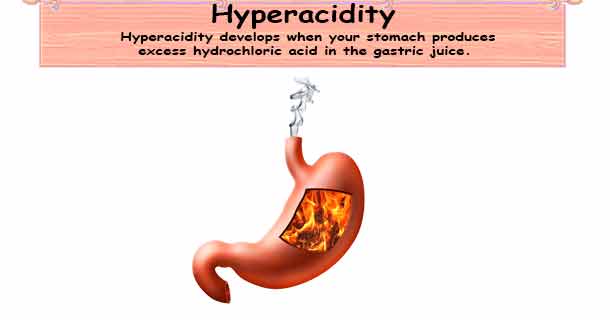Hyperacidity develops when your stomach produces excess hydrochloric acid in the gastric juice. Some call it as high stomach acid. This condition is most commonly among younger adults, especially men.
People with heartburn, acid reflux, abdominal bloating, GERD, and cramping are also due to a lack of stomach acid (hypoacidity), and should not be due to an excess of stomach acid (hyperacidity) alone. However, these people may take over-the-counter antacids or their doctor’s prescription proton pump inhibitors (acid blockers) to reduce their stomach acid. This will likely have a devastating consequence to their digestive system and health as a whole.
Why do we all need gastric acid?
The stomach requires an acid environment for various reasons:
- It sterilizes your stomach and kills harmful microbes that ingested with food.
- Certain level of stomach acid is necessary for proper closing of the lower esophageal sphincter and opening of pyloric sphincter. Otherwise, it may results in acid reflux or improper emptying of stomach acid respectively.
- It helps to digest protein – by stimulating the secretion of the enzyme pepsin, which is requiring for protein digestion.
- It helps reduce ingested bulky food into chyme of smaller particles; this helps easy movement in your entire intestine until excreted.
- It initiates peristalsis movement (the rhythmic contraction of the intestine) to carries food through the entire gastrointestinal tract.
- It triggers the pancreas and liver to release digestive juice and enzymes’ lipase, amylase and protease. Lipase helps digest fat, amylase digest carbohydrates and protease further digest already partially digested protein.
- It is essential for various nutrients (such as vitamins and minerals) absorption, which is a key for normal body functioning.
What is hyperacidity?
During digestion, the stomach naturally produces hydrochloric acid to break down ingested food in order to absorb the nutrients easily. When the stomach is started secreting too many hydrochloric acid results in hyperacidity. This increase in HCl acid triggers other acids and enzymes to secret and makes the condition worst.
Hyperacidity is a common condition; a person experiences stomach discomfort after eating, which is due to the excessive acid secretion during the digestion process. Hyperacidity, also known as acid dyspepsia, can cause appetite loss, vomiting, and constipation.
How common is hyperacidity?
It is a less common condition than what you might think; approximately, 20 to 25% of the people annually have high acidity. Many people who have treated for hyperacidity, actually does have hypoacidity and mistakenly diagnosed treated as hyperacidity. After age 35, most people have lower secretion of stomach acid.

